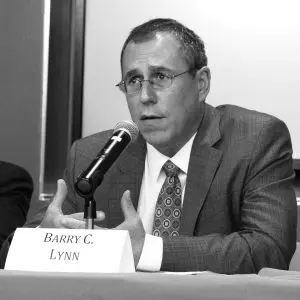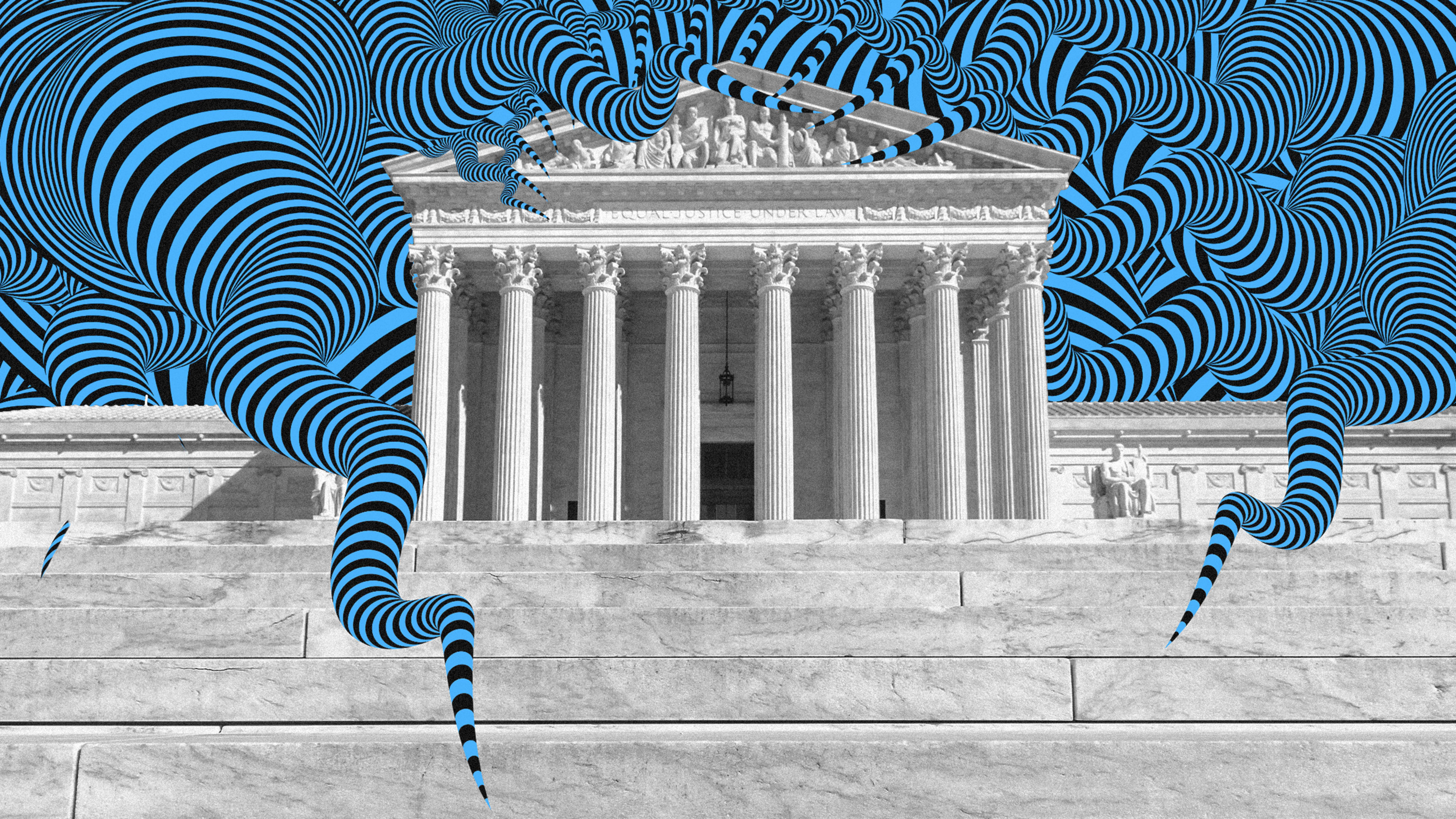One of Elizabeth Warren’s signature 2020 proposals is to break up big tech companies such as Facebook and Google—but this isn’t new territory for the senator. In June 2016, she gave a keynote speech addressing the threat of consolidation and concentration of the big tech companies on American ideals. “Concentration threatens our markets, threatens our economy, and threatens our democracy,” she said, urging leaders to “revive antitrust enforcement and . . . fight back against dominant market power and overwhelming political power.”
This is by no means a revolutionary concept. “Competition policy is how you achieve democracy and liberty,” says Barry Lynn, the former director of the Open Markets Program at New America, which hosted Warren’s remarks. “And that has been true from the founding of the United States.” The Sherman Antitrust Act, which became law in 1890, was the original piece of federal antitrust legislation, which the Supreme Court then used as grounds in 1911 to break up Standard Oil. The Clayton Antitrust Act, enacted in 1914, further strengthened those laws, adding stipulations to curb discriminatory pricing and block mergers and acquisitions that significantly reduced market competition.
But Lynn, an ex-journalist who is now executive director of the Open Markets Institute (which he formed after an acrimonious departure from the New America foundation over an argument about corporate power), says the Reagan administration softened antitrust laws, and they’ve remained lax ever since, allowing “capitalists to concentrate their power.” That’s why we see monopolies across all industries, creating “masters of entire domains,” like Walmart, Pfizer, and Monsanto. “So it is not just the tech companies,” he says. “They’re just the problem on steroids.”

Lynn’s work at the Open Markets Institute, a think tank that focuses on anti-monopoly policy, includes advocacy via written articles and papers, debates with economists and antitrust scholars, dialogues with lawyers and filing amicus briefs, engagement with the Department of Justice and the Federal Trade Commission, and interacting with legislators and testifying before Congress. “We will talk to Republicans, Democrats, Independents, Socialists,” Lynn says, making clear that this need not be a partisan issue.
He says the Institute has met with more than half of the 2020 Democratic candidates to promote its ideas. Open Markets doesn’t endorse candidates, but Lynn speaks highly of Warren, whose 2016 speech for New America, he says, was “probably the single most important speech in the history of the resurrection of anti-monopolization in the United States.”
Markets was originally a branch of New America, but it split off from the larger organization in 2017 when then-senior fellow Lynn commended a $2.7 billion antitrust fine against Google, which had partially funded New America. The Open Markets Institute launched in September 2017, specifically “to address threats to our democracy, individual liberties, and our national security from today’s unprecedented levels of corporate concentration and monopoly power.”
The Open Markets Institute is not against market competition, which Lynn says “is inherent in society.” It’s not even advocating for regulation for the reason of lowering prices. The rationale is loftier: It’s about preserving the nation’s founding economic traditions. “We have a full vision of an alternative political economy,” he says, “based on the competition policy that was put into place at the founding of the United States.”
Lynn is also comfortable with classifying Amazon and other tech giants as “natural monopolies,” akin to essential facilities like electricity and gas. Perhaps it’s easier if everyone can simply go to Amazon for their books, say. “Maybe we’re dealing with monopolies that the public, given their druthers, would actually choose to have,” he says. If that’s the case, then Amazon, Google, and Facebook are the gatekeepers that allow individuals access to the marketplace—and Lynn says they then have a duty to treat everyone evenly.
He’s concerned specifically about personalized pricing, the idea that companies can use your data to decide what to tempt you into buying, and, if you seem willing to pay more, at a potentially higher price than they’re offering to another user. He uses the analogy of a single local railroad that charges residents for transporting their grain to market. “That person must charge everybody the same price for the same terms of service,” he says.
The danger is not just economic, Lynn says, but also political. That gatekeeper has the ability to pick winners and losers, and so ultimately has the power to extort and exercise political control. Customers can voluntarily choose not to shop at Amazon, for example, but some people aren’t in a financial position to buy their groceries at a farmer’s market instead. Besides, he says the effects are marginal, compared with federal action.
So it’s up to the government to “neutralize” these companies: to enact anti-monopoly laws to regulate the mushrooming growth of these corporations and their mergers and acquisitions. That doesn’t mean nationalizing the companies. It doesn’t even mean the government setting prices. It’s simply the government laying out an equal playing field so that everyone can participate fairly in the market. “It’s really quite simple,” Lynn says. “We’ve done it a gazillion times.”
For Lynn, the 2015 decision on net neutrality provides a template. The FCC ruled in favor of the regulatory initiative to guarantee every individual equal access to the internet, at the same speeds and at the same prices. Regulation of a similar kind can be applied to the monopoly issue, which would effectively spur more competition.
“The most important thing the government can do is actually engineer competition, so that there are real incentives and rewards for introducing technologies,” Lynn says. “To free individual people, who can go out and bring forth all their best ideas.”
Recognize your brand’s excellence by applying to this year’s Brands That Matter Awards before the early-rate deadline, May 3.
